#SAG-AFTRA Foundation
Explore tagged Tumblr posts
Text
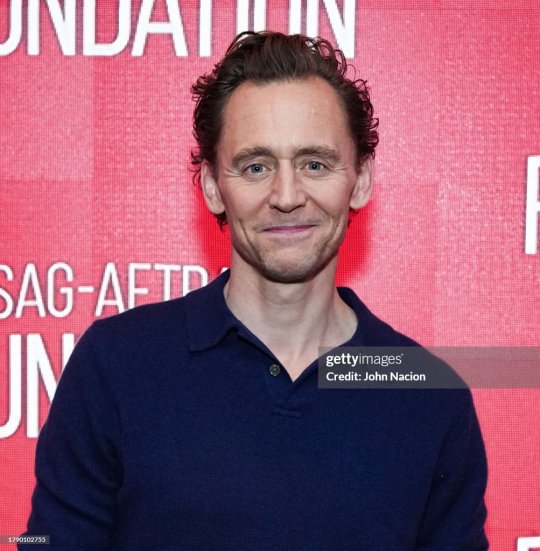










SAG-AFTRA Foundation Conversations - "Loki" With Tom Hiddleston
NEW YORK, NEW YORK - NOVEMBER 12: Tom Hiddleston and Erik Davis attend SAG-AFTRA Foundation Conversations - "Loki" With Tom Hiddleston at SAG-AFTRA Foundation Robin Williams Center on November 12, 2023 in New York City. (Photo by John Nacion/Getty Images)
121 notes
·
View notes
Text
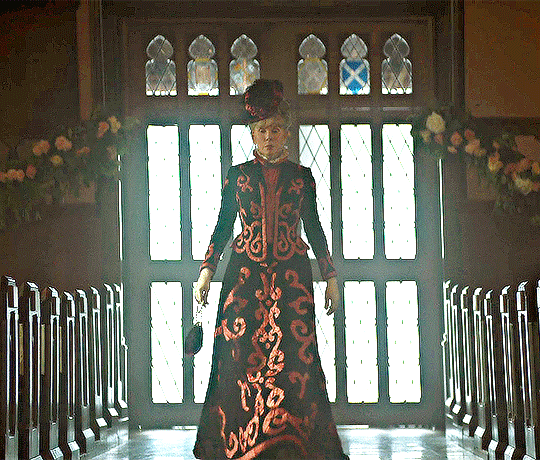
GIF cred @berthas-russells
Christine describes the little secret behind the dress Agnes wore to Ada's wedding.
[source]
TGA 02x05 Close Enough to Touch
#christine baranski#agnes van rhijn#the gilded age#the gilded age hbo#tga 2x5#close enough to touch#ada brook#cynthia nixon#costume appreciation#video#kasia walicka-maimone#sag-aftra foundation#interview#conversations
34 notes
·
View notes
Text

13 notes
·
View notes
Text
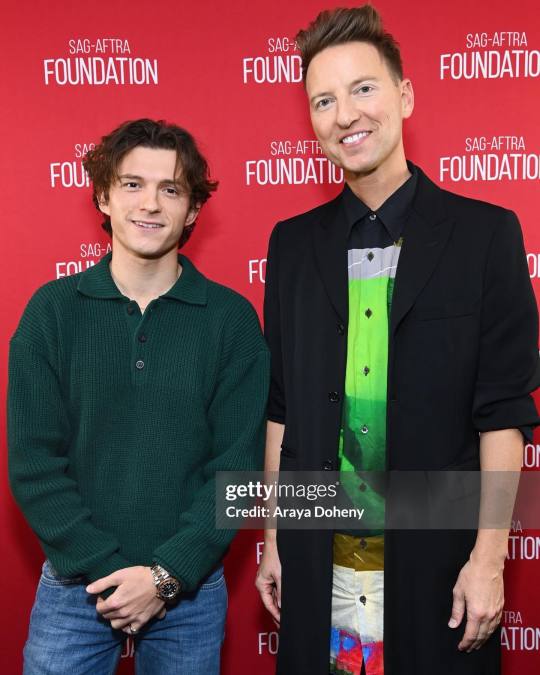
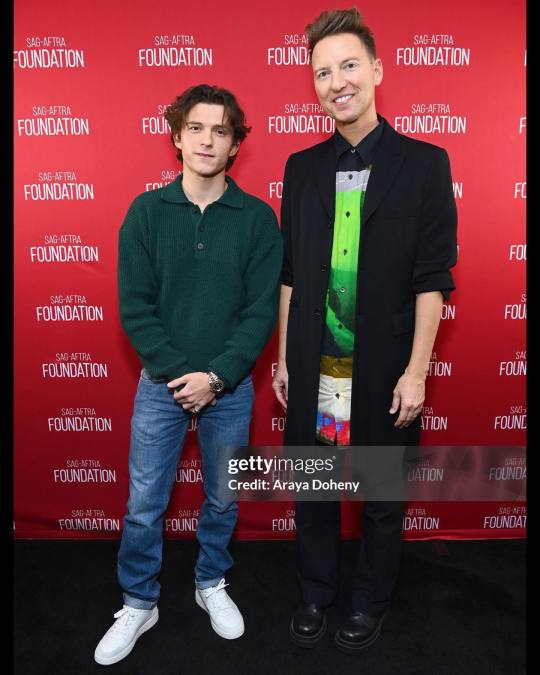
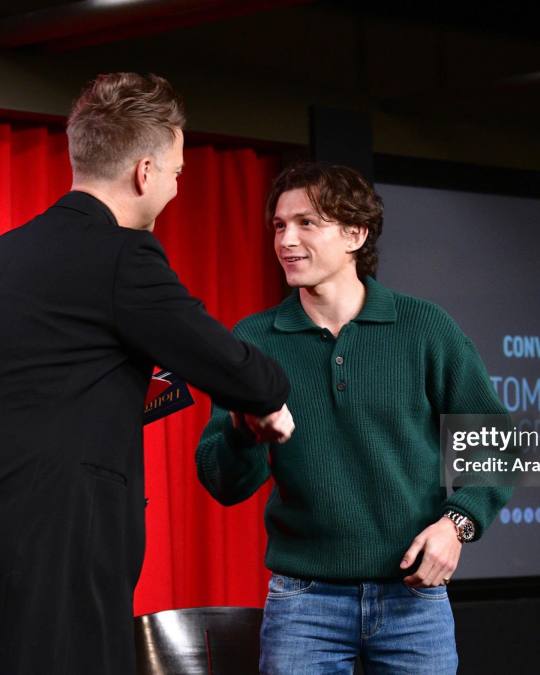
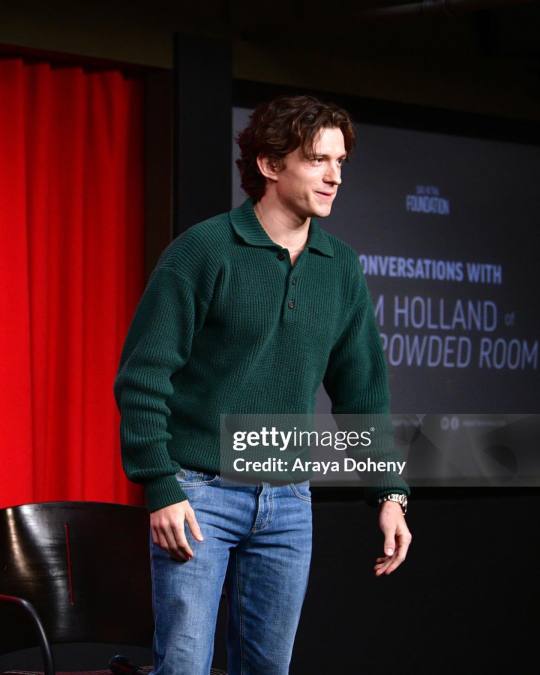
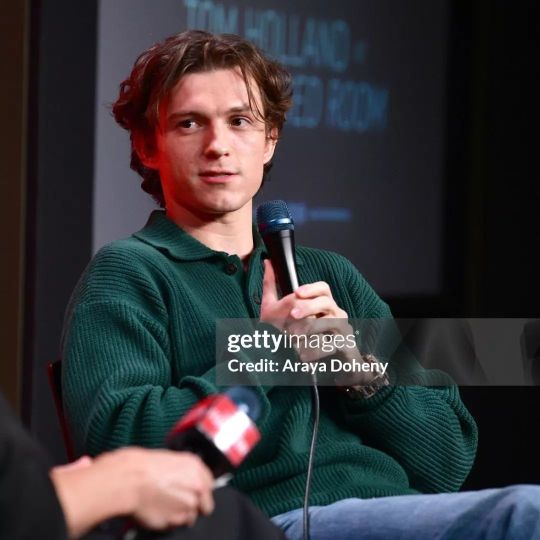
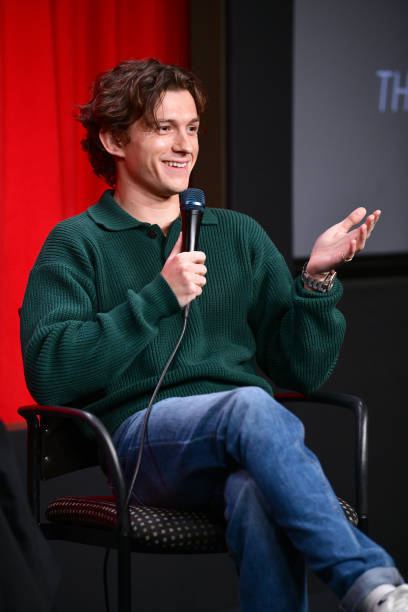

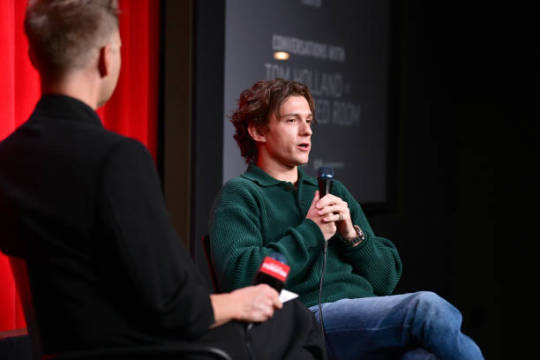
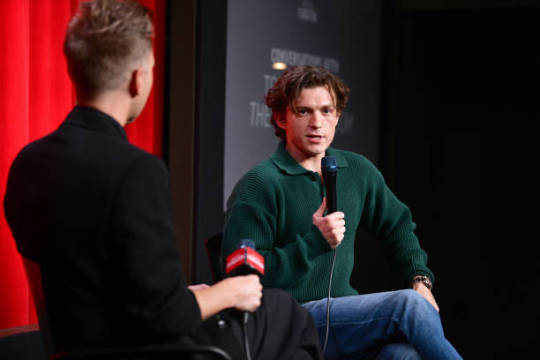
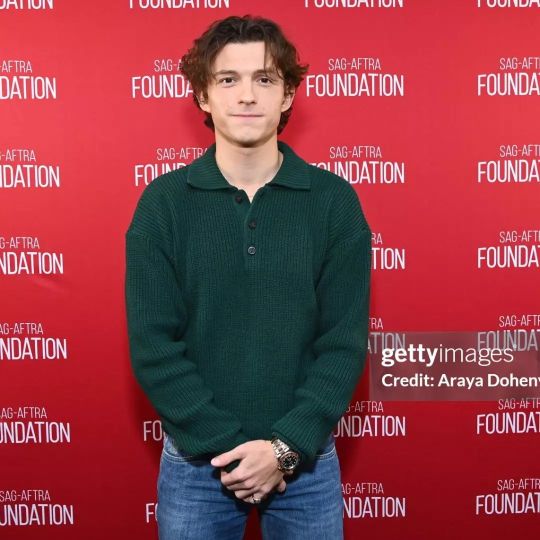
Tom Holland attends the SAG-AFTRA Foundation Conversations - "The Crowded Room" at SAG-AFTRA Foundation Screening Room on November 29, 2023 in Los Angeles, California
42 notes
·
View notes
Text


Kevin Bacon & Kyra Sedgwick on March 30, 2023 while attending SAG-AFTRA Foundation in New York
#Kevin Bacon#Kyra Sedgwick#March 30#2023#New York#USA#Couple#SAG-AFTRA Foundation#Husband/Wife#Beautiful
2 notes
·
View notes
Text
🥰
“I’ll use sentences.” 😂😂😂
128 notes
·
View notes
Text

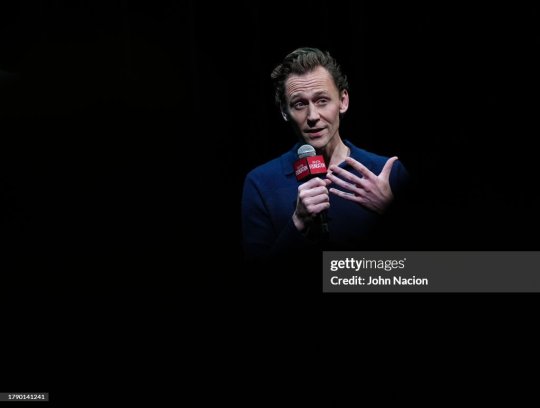

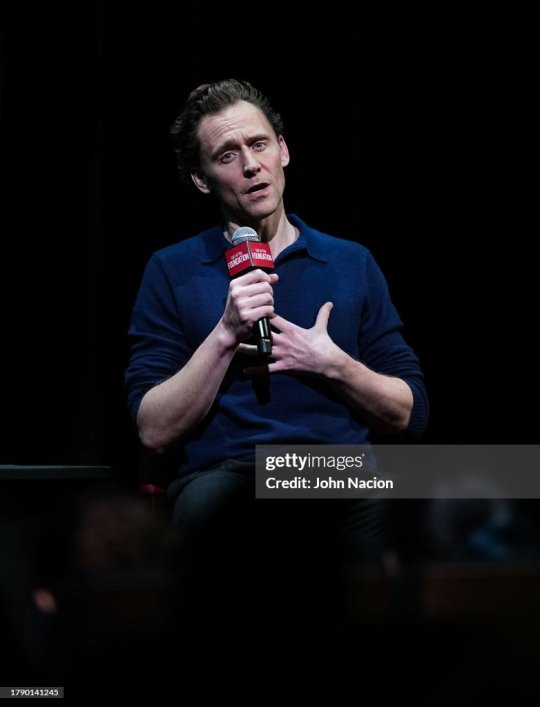
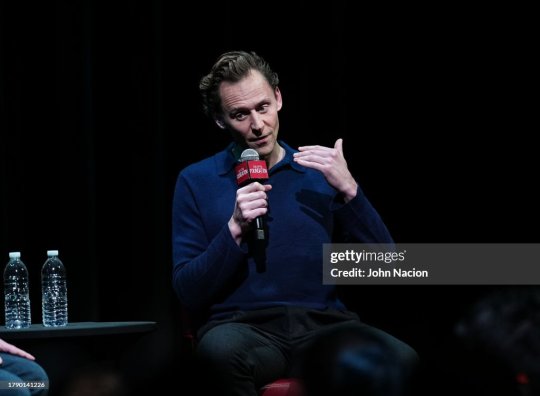
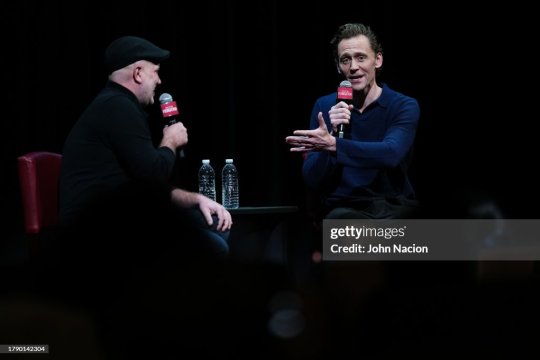


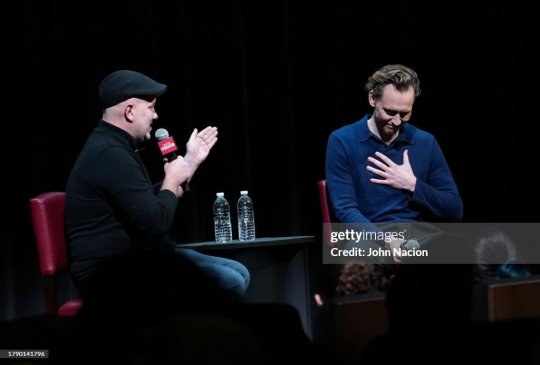
SAG-AFTRA Foundation Conversations - "Loki" With Tom Hiddleston
NEW YORK, NEW YORK - NOVEMBER 12: Erik Davis and Tom Hiddleston attend SAG-AFTRA Foundation Conversations "Loki" With Tom Hiddleston at SAG-AFTRA Foundation Robin Williams Center on November 12, 2023 in New York City. (Photo by John Nacion/Getty Images) (9 photos)
126 notes
·
View notes
Photo


683 notes
·
View notes
Text
Ninety-six minutes of that beautiful, talented man talking about his career is just such a joy (especially when I, too, am “a fuckin’ nerd” for this stuff).
Just watched the entire thing, some initial and random observations:
his incredible memory for productions that could be 25 or more years ago, and not just ones he was in, either.
his emphasis on the idea of always “starting from zero” with a role, which he frames a lot in educational and training terms - the idea of a lifelong learning process inherent in the craft.
the humbleness and respect for his peers and for the massive shows he had one-off gigs on
his repeated references to being in unions (yes I know he was talking to SAG but like, after all the shit we saw during the strike from some quarters?? Union man, baby ✊🏻)
his thoughtfulness and consideration in responding to the questions (which were great - such a gorgeous, warm conversation)
the interest in going back to directing (!!) but also the anxiety that comes with the responsibility
“Gimme a comedy” YES GOOD YES AGREED
the general sense of something that I love to see in people regardless of their job or profession: they take the work seriously, but they don’t take themselves too seriously.
I just love that man. Shocking news, I know. But I do.
(PS I’m going to need someone to gif that “I’m a fuckin’ nerd” line as a matter of urgency because I NEED THAT IT ME I AM A NERD I AM HE AS HE IS ME ETC)
PPS and editing to add: someone get that man on a nice throat medicine please the poor guy
youtube
Pedro’s SAG Career Retrospective
230 notes
·
View notes
Text
youtube
"As long as the cat isn't here. That cat - I always say that cat is; got the best part, part in the whole show. The cat is great, isn't he? He's a SAG member."
"There were a few cats, actually. Yeah, there were a few - few cats. No, no, no; I mean there were a few, few cats auditioned, so to speak - you didn't think it was gonna go this way, did you?"
"Yeah, well I mean I think, uh, when I first heard about it, you know, my first thought was: 'Well, there are really great iterations of this story that people love' - myself included, you know - you know, and so, you certainly don't want to do anything that would be a carbon copy or what's - it would just be pointless to do something that was sim, similar to the Minghella film that um, everybody knows so well and loves so much, um, or any other iterations. So one of my first questions to Steve was like: 'Why?' and he had a very, very specific notion; in fact, he, the, the f - the copy that he read, um, as a young man was in - had a black and white photograph, and I think that just ignited something in his imagination.
And he's got a very, very singular, singular vision, and not just a sort of visual, um, imagining of the story, but a sort of tonal one in the sense that he was very interested in the, um, the details and the machinations of it. And I think he wanted us, it wants the audience to kind of, um, uh, watch it in the same way that you might read a novel, read the novel, in the sense that you can, in this episode - you guys just watched episode 5, right - and so that you can go really into great detail about a very specific; you just go off into a, um, um, um, a very particular area without the pressure to, um, keep the, keep the plot going in the same way that you might spend five pages describing something in a, in a, in a book - that you take pleasure in, in just really going, turning a corner, spending a lot of time there; and I think that's a very, um, audacious, uh, quietly audacious way, of, of making television in this day and age."
"Eliot is heavier than you might imagine."
"It's really interesting about backstory. I sometimes think backstory is overpraised a little. Um, I think the - particularly for somebody like Tom Ripley, you know, I feel like the character has loads of secrets, and I feel like, as an actor, you sort of have to keep the things that I might think about - whatever my perception of the character is - a secret too, you know? And so this idea that, uh, you know, he's the hero - he's an anti-hero of sorts - but, but he's an, he's an unreliable one so, I don't know; sometimes I think the idea that we know as much as the audience know and that actually you just play the scenes, uh, for whatever they are, and you don't rigidly, uh, stick to a map that isn't going to be particularly helpful to you.
Um, so there are a little - for Tom certainly - you know, the idea that he might say something and you think: 'Am I going to say this - ' you say everything with; he's an expert at, uh, lying, so I'm going to say everything with conviction. So, you know, like the way I think, I think what she's so adept at understanding is, is that human beings are expert at, at, at lying, and so the backstory so to speak that we might have ourselves as human beings, uh, we alter depending on who we're talking to, and we don't have a - when we hug them and have a sort of - we don't give it away - you know, we, you know, we - we lie with absolute expertise, and I think that's what she's exploring, and I don't think that's exclusive to just the Tom character - I think as Dakota was saying, they're all murky kind of characters, you know, in a sense."
"Absolutely. I, I, I, I, I don't - I don't actually think he's a psychopath, and I don't think any of those things are; a lot of the scenes that, that we play, as Dakota was saying as well, was, was - are very domestic scenes, and he's not a natural born killer. Um, and I think what she's exploring is that feeling of being 'othered', that's about somebody who's not invited to the party and somebody who's overlooked; we - we see him, you know in a rat filled apartment in the Lower East Side and he's this great, brilliant, talented person that has - has been completely ignored by the world.
And then he's exposed to these people who, um, are probably less talented than he is and feel absolutely entitled. And when there is a sort of, uh, disparity in the way that, uh, that, um, beautiful things are, um, are doled out to, to, to people in the world, and there's a, there's an injustice there - uh, something rotten occurs in the state of Denmark - and we don't, we don't, we don't, we don't necessarily murder, but it invokes a c - certain rage, and I think that's why people sort of are - find this character so, um, enduring and so why you kind of, in some ways, root for him. Because we all have that feeling of, of, of, of, um, of not being invited to the party, and I think that's what she's so expert at, um - "
"That's, that's why, that's why she's the greatest crime - one of the greatest crime writers of all time, because you think: 'Don't get caught, don't get caught!', because - and that's not because we've; she's not asking us, asking the audience to, to imagine what - and, and nor is she asking us to for, for, for, for us to imagine what it's like to be a victim of Tom Ripley; she's asking us to inv - to, to imagine what it's like to be Tom Ripley. That part of us that is him, not, not, not - not somebody else, and that's a very interesting kind of, uh, for a protagonist in a, in a, in a, in a story."
"I think that's, that's, I - I really do think that's what Steve's intention was because, again, I think that's the way we, we would read a novel; it would be unusual - I mean, it's possible of course that you would read a novel in one sitting - but it would be unusual. And so we've got, we've got into this uh, uh, I don't know what we call it - it's a fashion to sort of binge-watch things which is cool, I mean there's nothing better than that, but it's nice to sort of offer a counter-argument about the way that we can watch television now."
"Yeah, it's, it's important, um, that there's some degree because, of that, because I think it's a pleasure for the audience, but having said that, uh, I don't, I, I don't, I don't know - I think our version of it slightly is that, you know, in the novel there's kind of this idea that they, you know, he puts kind of oil in his hair to, you know, like much more disguisey so to speak and I, I don't know - we, Steve and I spoke a lot about hiding in plain sight, um, and the idea that, uh, by just saying something to somebody with conviction, uh, they might believe you, depending on what their personality or how open they are to being deceived. And that's what's so helpful for Tom, particularly with Inspector Ravini, uh, because you think: 'Is this person who's scrutinizing me - is that, are they scrutinizing me because they know something, they've - they've sort of sussed me out, or because they're just a little bit more stupid than me?' Do you know what I'm saying? That, that actually, that actually sometimes I think Tom's great talent is to be able to uh, think on the, think on the, on, on the, on the moment. So, so that to me is much more interesting than absolutely nailing 100% the, the, um, being able to, um, uh, imitate, uh, Dickie Greenleaf in, in, in, in, in, in a 100% pure form. I think that's part, part, part of the challenge but, uh, so much of that is up to the, the audience's imagination - to allow them to have the space to be able to, to um, to, to see that too. Does that make sense?"
"Oh I did, yeah, yeah, yeah. Yes, yes, yeah, yeah, yeah - and I was; don't get me wrong, I was completely obsessed with Johnny; I looked at every single thing that he's ever done. And I was like copying the way his voice was, the way he was in American, what way he was - and also, I knew what Johnny was like as a, as a person in this, but he'd never played Dickie Greenleaf before, so I didn't know what way he was going to play Dickie Greenleaf, and I was obsessed with, with that, and kind of copying him - and then probably looking at him in kind of a creepy way. Uh, I said that to Johnny; I said like: 'I'm going to be, I'm going to be like sort of staring at you' - and he's so relaxed Johnny.
Uh, um, so yeah, that was, that was really, really important, but then you have to just - you kind of have to let it go, and then you just sort of, you sort of feel like; you feel a bit like Johnny, and then hopefully it, it does a bit of that, and then the audience does a little bit of it and then, you know, you know - and then saying the same words and, and the, the music, the musicality is more important I think; and his voice; he, he, he, he speaks in this sort of slightly different registry."
"He uses - I think what's so extraordinary, just to say about music is - he uses music so sparingly and he uses sound in such an extraordinary way, um; there's an extraordinary amount of silence in the, in the, in the, in, in, in episode 5 but also in episode 3; I think it's extraordinary. And I think that's really audacious to do that; that you don't sort of manipulate the audience with incidental music - that you just; you sort of make them endure what Tom has to endure. Um, and I think, you know, there's a sort of deadening and I don't, like, the threat of silence, you know?"
"Well it was very, very - you know, those scenes are long, you know; they're six, seven, seven page scenes and uh, you want to get them right, and you want to make those two, uh, scenes that we have sort of distinct from each other in a way. Um, a huge amount happens when Freddie's leaving and then you think: 'Oh my God, how do you, how do you, how do you maintain that?' So much of it, uh, I think this seri - the, the way this story is told is about restraint and that was - it was wonderful to, um, to be able to see that, that audiences can really, really take that, um; because it's so much about - it's, it's, it's like there's musicality to it, you know?
Um, um, but I, I, you know - Eliot was absolutely brilliant to work with and um, it was great to sort of get some of those big, big scenes out early, um, because obviously the challenge for me was to, was to, we, we - we were very lucky; we got the entire script right when we were asked to - you know, offered the parts, which is quite unusual - sometimes you just get the first two episodes and you don't know where you're going. We had that full Bible of everything, so for me it was about mapping out what way it would be for the entire thing and what - when you would show that colour and when you would show other colours. So to be able to do that with Eliot from the beginning just meant that you had some - something to sort of; a rock to hold onto knowing that's going to be there in episode 5, and then you could go back to episode 1, so that was; that's, that's a big thing to - it was a huge, huge thing to hold in your head."
"They don't come up to me. (laughter) No, they do, they do, they do. Um, yeah, it's - it's really, people have, are incredibly passionate about, about - you know what I think, uh; honestly speaking, I think some people, uh, because the pacing is so different, I think some people find that hard to judge, and some people I think find that the, the relentlessness of the - and the intricate nature of the storytelling - a little bit hard to deal with, and some people just want it frankly to go a little faster.
But the people who don't, really, really embrace it with such passion and feel like: 'Wow, I really want - ' - a lot of people watched it in the same way that you watched it, which is like, I'm just - there's so much to take in and such a full meal, that you don't actually want to watch four episodes of it, because you want to be able to savour it and it looks so beautiful, and you're able to just really bathe in it. And I think that's what the reaction to it is so to, to make sort of singular work like that is what all, all of us actors want to do. You want to do something that, um, that, that has it's own spark of divine fire, you know, and, and uh, that's what you try and look for is just each like something that has a real autograph in it, and that's what I love about it and that's, that's, that's mostly how, if people come up, that's what they might say."
#Andrew Scott#Dakota Fanning#Eliot Sumner#Marge Sherwood#Freddie Miles#Netflix#Ripley#SAG-AFTRA Foundation
10 notes
·
View notes
Text
Tom Holland talks about filming the dance scene with Sasha Lane in episode 8 of The Crowded Room
22 notes
·
View notes
Text
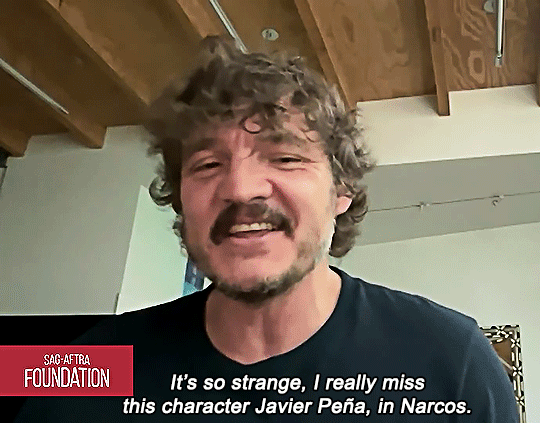

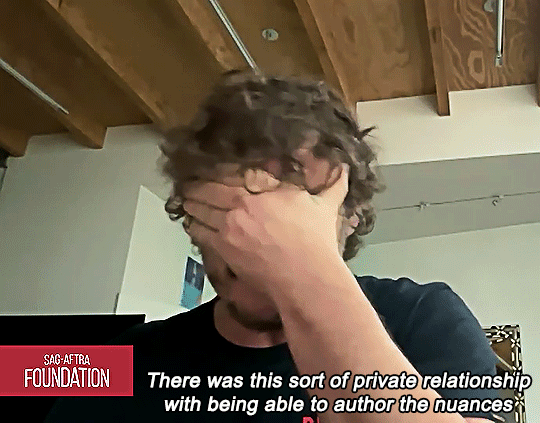

Being that cool. And getting to smoke that many cigarettes.
1K notes
·
View notes
Text


Jonathan Bailey and Matt Bomer drinking milk at the SAG-AFTRA Foundation Screening of Fellow Travelers (August 16, 2024)
245 notes
·
View notes
Text
Taylor talking about how he’s so grateful for the things he’s got and experienced (I can also feel his lil voice shake here❤️) just made compilation of him saying “ I’m so grateful” parts from this conversation
❤️him being grateful for fan interaction & comments on rwrb achievements
❤️him talking about working with intimacy coordinator while filming
❤️him being grateful for his audition experiences
❤️at the end of conversation, he said he’s so grateful to be sitting here today
I love how he values his past and present moments with his whole heart, taylor zakhar perez is such a precious soul 🤍
#taylor zakhar perez#tzp#actor#hollywood actor#rwrb cast#red white and royal blue#sag aftra#sag aftra foundation#rwrb alex#rwrb movie#rwrb sequel#handsome#gorgeous#rwrb#alex claremont diaz#tzpedit
165 notes
·
View notes
Text
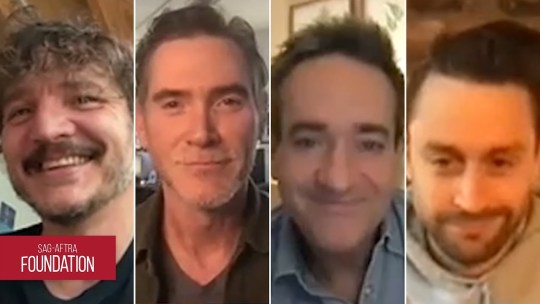
SAG-AFTRA Foundation actors roundtable !
Available now on Youtube
youtube
248 notes
·
View notes
Text




CAILEE SPAENY Hair styled by Kiley Fitzgerald and makeup by Loren Canby ahead of the SAG-AFTRA Foundation Conversations' Priscilla Screening and Q&A on November 15th 2023
#cailee spaeny#cspaenyedit#caileespaenyedit#womenedit#userladiesofcinema#userladiesblr#femalestunning#priscilla#priscilla 2023#sag aftra#sag aftra foundation#flawlesscelebs#flawlesswomen#dailywomen#femaledaily#gifset#actoredit#my edit
85 notes
·
View notes